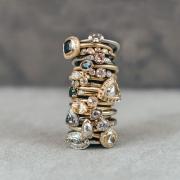The days of production-line dentistry are fast disappearing, as expert Carol Somerville Roberts explains.
Does anyone really enjoy going to the dentist? It's a necessary evil for many people, with 60% of the population experiencing some degree of anxiety before or during a visit to the dentist.
Is there an alternative? Could there be an evolution developing in a dental practice near you?
Imagine this. When you arrive at the practice for the first time, you are greeted by name and offered complimentary refreshments.
Totally relaxed, you are then ushered calmly into your comprehensive appointment, during which as much information about you, your previous treatment and future expectations is gathered. All the information is computerised and digitally stored, so that should you require a copy of your x-rays, they can be supplied to you immediately.
Welcome to 21st-century dentistry. More and more dentists are reassessing how their patients are treated throughout their appointments, and with a bit of research on your part you too can discover a whole new experience when it comes to this ever-important part of your healthcare.
But what about the business of dentistry? A small but increasing number of dentists are also beginning to understand that to look after someone's mouth properly, you have to consider the whole person. Taking a holistic approach to dental care means that every patient comfort has been considered, from the appearance and d�cor of the reception area to the ambience within the treatment room. Research has shown that something as simple as the smell of lavender in the reception area can greatly reduce a patient's anxiety.
The importance of whole-body care is particularly important when it comes to the mouth. Many systemic illnesses can first have symptoms that show here, including anaemia, Crohn's disease and vitamin deficiency.
Though not commonly known, complementary therapies can greatly help support a patient's traditional dental treatment. Homeopathy can be used in many situations in the dental chair, from arnica for use after extractions, to aconite to ease anxiety. Hypnosis, flower remedies and acupuncture are also widely used. Whilst these therapies are not an alternative to comprehensive dental care, they can significantly improve the patient experience and support healing.
Dentistry is evolving, and there are some dentists out there who understand that it's not good enough to drill, fill and bill. As well as considering a whole patient approach to dental care, a significant number of dentists are becoming experts in facial rejuvenation, and given their knowledge of the anatomy of the face and their injecting skills, it could be argued that dentists are perfectly placed to treat patients with botulinum toxin and dermal fillers to reduce wrinkles. These treatments are an additional anti-ageing solution that complement tooth whitening, which is offered by most practices.
Patients are becoming increasingly aware of the cosmetic options available to them, particularly with TV makeover programmes highlighting the difference a beautiful smile can make to a person's face - and their confidence! By listening to their patients and responding with their clinical skills to what they hear, dentists really can change people's lives and ensure that they are as healthy and beautiful as they aspire to be, but most importantly they can face a visit to the dentist without the stress previously associated with traditional dental care.
Carol Somerville Roberts is the Clinical Director of Evolve Dentistry in Portishead. She has 10 years' experience of cosmetic dentistry and is a facial aesthetics practitioner. www.evolve-dentistry.co.uk, 01275 842550.


























